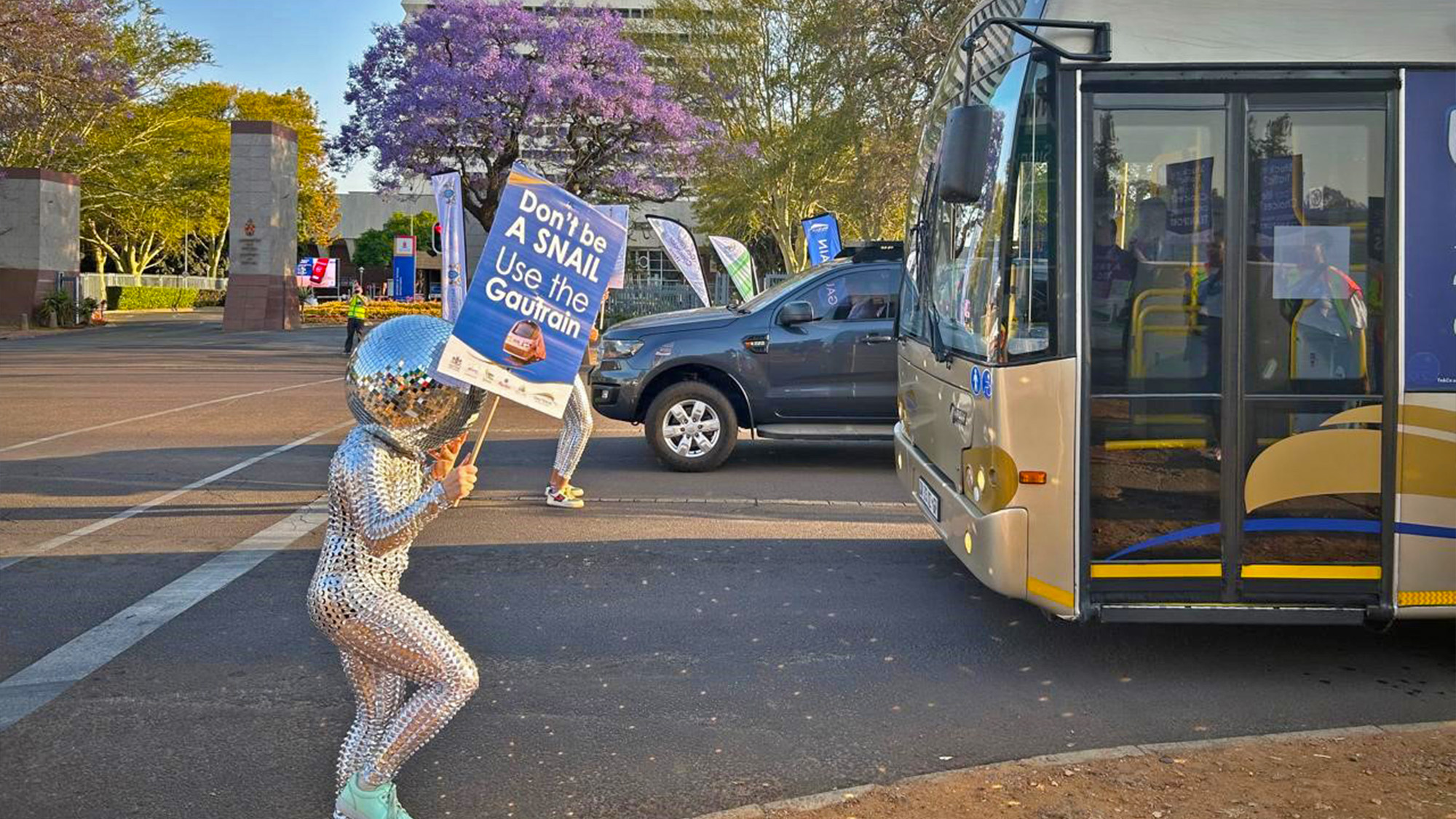In a bid to alleviate traffic congestion and promote sustainable living, the Gautrain and A Re Yeng recently teamed up to advocate for greater use of public transport over private vehicles.
- This initiative, part of October Transport Month, aims to highlight the benefits of public transport in Tshwane and Johannesburg.
- The campaign aims to encourage commuters to rethink their daily travel choices.
- By choosing public transport, individuals can also contribute meaningfully to a collective effort towards a greener future – one ride at a time.
- Visit www.sandtontimes.co.za for more stories.
The bustling streets of Tshwane recently hosted an activation at a key intersection, where motorists caught in morning peak traffic were invited to consider the advantages of switching to public transport. This event, scheduled to repeat in Johannesburg later this month, is a collaborative effort between the Gautrain and the Bus Rapid Transit (BRT) systems, underscoring the collective commitment to sustainability and efficiency.

Public transport offers a plethora of advantages over private vehicles, as emphasized during the activations. It is touted as more efficient, convenient, cost-effective, reliable, safer, and greener. These attributes address several pressing issues faced by urban areas today, including:
- Efficiency and Reliability: Unlike private vehicles stuck in traffic, public transport systems like the Gautrain and A Re Yeng operate on dedicated lanes, ensuring quicker and more reliable travel times, particularly during peak hours.
- Cost-effectiveness: The financial benefits of using public transport are significant. According to studies, regular Gautrain commuters can save up to 7 hours and approximately R1’300 monthly in fuel and maintenance costs compared to driving. This economic advantage extends to reduced wear and tear on personal vehicles.
- Environmental Impact: Perhaps the most compelling argument for public transport is its environmental footprint. A single trip on the Gautrain reportedly saves an average of 2.8kg of carbon dioxide per passenger compared to a private car. Similarly, Rea Vaya BRT in Johannesburg cuts down carbon emissions by an estimated 40’000 tons annually, contributing significantly to the city’s sustainability goals.
- Safety and Convenience: Public transport networks are designed with safety in mind, offering commuters a secure travel environment. Moreover, they provide convenient access to key destinations without the hassle of parking or navigating congested streets.
Key figures at the activations highlighted the transformative potential of public transport. Tshepo Kgobe, CEO of the Gautrain Management Agency, reaffirmed their dedication to a sustainable transport future, stressing the importance of integrated networks with partners like A Re Yeng and Rea Vaya.
Brenden Govender, Chairperson of the Oversight Committee, echoed these sentiments, noting that choosing public transport not only saves money but also contributes to a cleaner, more sustainable urban environment. Pheko Letlonkane, Group Head for Road and Transport, urged residents to embrace this shift, emphasizing the role of every commuter in shaping a greener, safer Tshwane.
In Johannesburg, Benny Makgoga, Acting Executive Director for Transport, highlighted the environmental gains of Rea Vaya BRT, citing significant reductions in greenhouse gas emissions. He underscored the city’s commitment to tackling traffic congestion and pollution through innovative public transport solutions.

As cities worldwide grapple with urbanization challenges, initiatives like those undertaken by the Gautrain and A Re Yeng provide a blueprint for sustainable urban mobility.
With upcoming activations and ongoing advocacy efforts, October Transport Month serves as a rallying point for residents to reconsider their commuting habits. As Tshwane and Johannesburg embrace these changes, they set an example for cities worldwide, demonstrating that sustainable transport is not merely an option but a necessity in our rapidly evolving urban landscapes.
Stand a chance to WIN with The Sandton Times.
Advertise on The Sandton Times today!
Head back to The Sandton Times Home Page for more stories.

![sandtontimes-gautrain-transport-month-003-[2000×1125] Public Transport](https://sandtontimes.co.za/wp-content/uploads/2024/10/sandtontimes-gautrain-transport-month-003-2000x1125-1.jpg)










